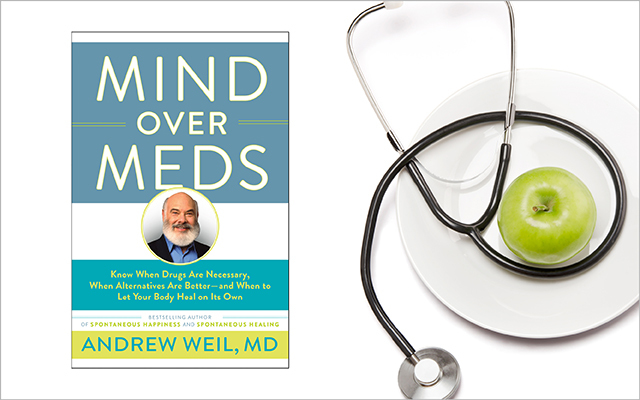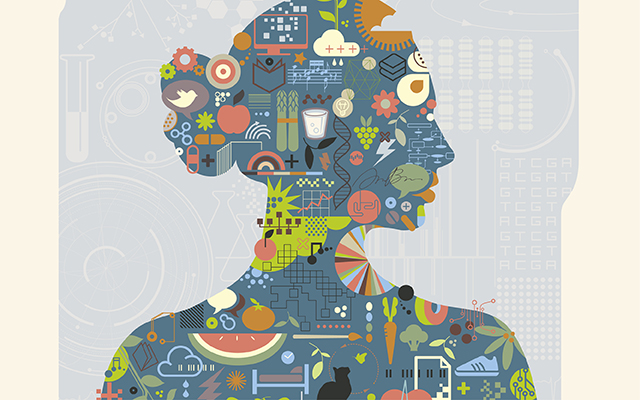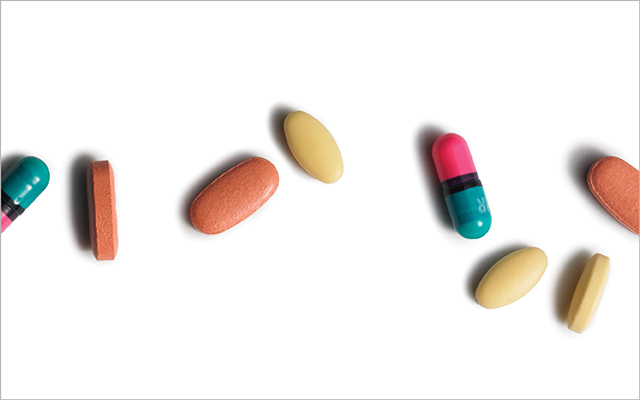When Andrew Weil, MD, was growing up in the 1940s and 1950s, doctors wrote prescriptions in Latin. To fill that prescription, “you had to hand it to a pharmacist who stood behind a high counter intended to prevent you from seeing what he did,” Weil writes in his new book, Mind Over Meds: Know When Drugs Are Necessary, When Alternatives Are Better — and When to Let Your Body Heal on Its Own.” The upshot? Patients had no idea what medications they were taking.
Although times have changed and the Internet has made health information widely available, Weil notes, people still do not ask enough questions about the medicine they’re prescribed. That’s just one reason, he says, why prescription drug use in the United States has increased tenfold in the past 50 years, and over-the-counter drug use has skyrocketed as well.
Drugs are certainly life-saving in critical and acute illnesses, Weil notes, but when it comes to chronic illnesses such as diabetes, high blood pressure, heart disease, and GERD, lifestyle changes such as dietary change, exercise, and stress relief are critical. “Taking a drug just because a doctor says so is not necessarily a good idea,” he counsels. “Always try to understand why you need it.”
To get a better sense of when to take drugs — and when to look for alternatives — we spoke to Dr. Weil. Here’s what he had to say:
Experience Life | Dr. Weil, you’ve spent the majority of your career in integrative medicine, using lifestyle-based approaches such as nutrition, movement, and mind-body medicine to tackle the chronic-disease epidemic. Why do you think prescription drug use in the United States has increased so dramatically in the past 50 years?
Andrew Weil | Drug makers have had a profound influence on both physicians and the general public. The information that doctors rely on when prescribing typically comes from industry rather than objective sources. For example, pharmaceutical companies commonly fund research. In these studies, drugs are typically pitted against a placebo, almost never against diet and lifestyle changes that may work as well or better. The results drive clinical practice.
Advertisements paid for by Big Pharma are the major revenue source for medical journals, a situation that compromises editorial objectivity. The current medical school curriculum and the influence of Big Pharma condition doctors from their first days of training and throughout years of practice to have more faith in the power of prescription drugs than in the healing power of nature.
Regarding the public, direct-to-consumer marketing by drug companies has increased demand for their products. Due in part to this type of advertising, people have a strong desire to be medicated, believing it to be the only or the best way to effectively treat disease. Direct-to-consumer marketing by Big Pharma should be banned.
Lastly, many people prefer the “quick fix” of popping a pill. Nondrug therapies, such as lifestyle modification, require motivation and active participation on the part of patients and may take time to produce desired results. And the pill, as opposed to safe and effective nondrug approaches, is usually covered by insurance.
EL | When it comes to chronic disease, why do so many doctors prescribe drugs as a first-line treatment instead of using lifestyle modifications?
AW | Current medical training is heavy on high-tech treatment options, including drug therapy, and neglects the power of prevention, the impact of positive diet and lifestyle changes, and evidence for the safe and effective use of natural remedies and complementary therapies. With little or no background in these areas, healthcare providers are left to rely almost solely on medication. The circumstances outlined in question No. 1 further complicate matters.
My colleagues and I at the University of Arizona Center for Integrative Medicine are working to improve medical education so that future healthcare providers enter practice with an understanding of how to support and optimize a patient’s innate healing capacity. Of course, drug therapy is an important method for maintaining health and treating disease — but it’s not the only method.
EL | What are the consequences of overmedication?
AW | Safety is the biggest concern – polypharmacy (being on multiple medications) increases the odds for adverse reactions, drug interactions, and the unintended worsening of health problems.
Another worry is cost — the markup on pharmaceutical drugs is greater than on any other commodity in the marketplace. Big Pharma justifies this by citing the high cost of research, but that represents a small fraction of what they spend on advertising and promotion.
There are also environmental concerns — we get exposed to drugs that are excreted from the body or thrown out because they accumulate in our water supplies, in the soil, and in the foods we eat.
Overmedication also contributes to the pervasive notion that drugs are the only answer, but drug therapy is often best at hiding symptoms. Drugs alone do not address the root cause of disease.
EL | You have a very evocative statement in your book: “No difference exists between a drug and a poison except dose.” What do you mean by that?
AW | All drugs become toxic as the dose is increased. Doctors generally believe that the best medications are those that are powerful and work quickly. Unfortunately, concentration of pharmaceutical power inevitably concentrates toxicity. These potent agents are necessary in cases of severe illness, where benefit outweighs risk, but they are now used for almost every disease condition, even mild ones.
Strong reliance on these isolated, purified chemical compounds produces a high incidence of adverse reactions, ranging from mild discomfort to multisystem failure and death, even when the drug has been prescribed appropriately. Herbal remedies are far safer because the active components are present in a complex natural balance and in low concentrations.
EL | You write in your book that you want people to become wise consumers when it comes to medicine — to know when pharmaceutical products are really needed. So when are they needed?
AW | Use of pharmaceuticals should be limited to those situations where they are clearly indicated — critical care, terminal care, and the management of severe disease. I would like to see them play a smaller role in the treatment of common conditions where the risks are not justified. For chronic disease management, drug therapy should be offered in the context of comprehensive care that also includes lifestyle modification and nondrug therapies. Both doctors and patients need to become knowledgeable about less expensive and less dangerous interventions that are safe and effective.
EL | Are there any heartening trends afoot? What will it take, in your opinion, for more doctors to adopt a lifestyle-first strategy to tackle the chronic disease epidemic?
AW | We are faced with the growing realization that over-reliance on prescription-drug therapy has come at a terrible price — worsening antibiotic resistance and an unprecedented opioid addiction and an epidemic of serious adverse drug reactions are some of the most disturbing developments. Doctors are responding by prescribing fewer antibiotics for viral illnesses such as colds and the flu (antibiotics do not work against viruses), and by recognizing that narcotic medications are only indicated for short-term pain management following acute injury or surgery — they are not effective for the relief of chronic pain. In contrast, positive lifestyle changes such as an anti-inflammatory diet and healthy stress-management practices, as well as complementary therapies including acupuncture and mind-body techniques, are safe and effective ways of managing chronic pain.
Crisis offers opportunity. In these challenging times, my hope is that as a country we see the wisdom of integrative medicine and the lifestyle habits it encourages as part of the solution to our healthcare crisis.





This Post Has 0 Comments